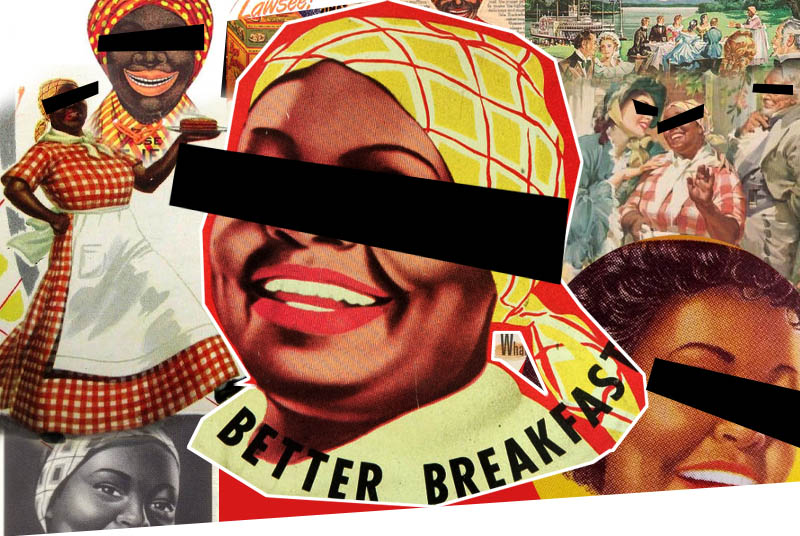I remember the first time I was called Aunt Jemima. It was around the 7th grade, and I finally got some confidence to wear a head-wrap to school. There were many different cultures where I grew up, so I thought I could pull it off. Then out of nowhere, while getting off the bus, someone called me Aunt Jemima. It wasn’t said to be a compliment and to be honest, it’s a derogatory term in the black world. In fact, no one wants to be like her.
If you do basic research, you can uncover that black people didn’t create this brand. It was founded in 1889 by two white men to perpetuate black servility. In fact, she was the longest-running “mammy” archetype mascot in the United States.
The many actresses who were hired by the Quaker Oats Company to play this character were paraded around from city to city forced to fake smiles and dumb themselves down for a check. Their likeness was plastered across millions of those red boxes generating an abundance of profits for the company.
One of the most notable Aunt Jemima models was Nancy Green. Hired in 1890, she went on to promote the brand by playing the plantation slave cook at Chicago’s World’s Columbian Exposition. After that appearance in 1893, she essentially put them on the map in regards to more marketing and in-person opportunities. What makes it sad is that she and many other women who played this stereotype garnered millions for the brand but were not paid residuals for their contributions.
-
Screenshots
The majority of people who are upset about the retirement of Aunt Jemima aren’t black; in fact, if you look online some may say it would be southern whites. They are lamenting that they are going to “miss seeing her pleasant happy face in the morning.” Many even believe that she was an actual person who was freed from slavery and created the brand herself. It brings up good memories of their housekeepers and the mammy’s they grew up with. They think the black population should be happy we had her as an ambassador to their breakfast table. Talk about out of touch.
Over the years, her marketing image has morphed from a former plantation slave into Quaker Oat’s idea of a modern black housewife. It actually took them 100 years to remove the original mammy look from the popular box and replace it with the current look that younger generations are familiar with today. Now with all that is going on with the world, they are finally realizing that this was a harmful blemish on the tattered fabric of American society.
I don’t mourn for Aunt Jemima. I grieve for all the black women who were hired to play this character for decades because they had no other opportunities. I cringe at all the times I went grocery shopping and saw that red box of instant pancakes – a blatant diss from racist antebellum society, smiling in my face. I mourn for all the little black girls, who like me, had to go to sleep at night hating themselves because they were teased for their resemblance to Aunt Jemima. Remember, no one wants to be called Aunt Jemima. She was never a real person. She was a stereotype.

REFERENCES:
https://www.pepsico.com/racial-equality-journey
https://en.wikipedia.org/wiki/Mammy_archetype_in_the_United_States
https://www.newspapers.com/clip/7723978/the-burlington-free-press/
https://www.chicagotribune.com/news/ct-xpm-1989-04-28-8904080069-story.html
https://en.wikipedia.org/wiki/Aunt_Jemima
https://fortune.com/2014/08/11/aunt-jemima-great-grandchildren-class-action/
(All images assembled from Google search, WorthPoint and eBay; copyrighted to their respective owners)
